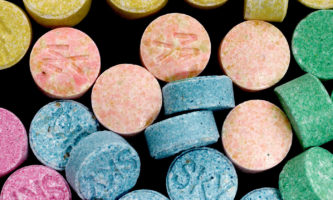From Aeon: While psychiatric drugs are often ineffective and can have serious side effects, there are many psychedelics and other illicit substances that have proven highly effective in relieving distress. However, these drugs continue to remain illegal due to an unfounded fear of addiction.
“Instead of worrying so much about addiction, which tends to correct itself when life becomes tolerable, maybe we should worry more about the sources of emotional suffering. Depression not only hurts, it kills. Anxiety drives people to intractable isolation and fertilises stress-linked diseases. Yet the idea of prescribing opioids, cocaine, ketamine, ecstasy and other illegal drugs to help people feel ‘better’ is, currently, heretical. Are we concerned that people might feel too good? We’d rather stick to antidepressants of minimal therapeutic impact, not because they guard against addiction – they don’t – but because of a puritanical aversion to supplying unearned happiness and, along with it, a deep-seated belief that people who suffer emotionally should just get over it.
Addiction is a side issue. Emotional suffering is the real problem, and it’s complicated. In today’s world, the pressure to meet the expectations of success lead to anxiety, a sense of failure, guilt and depression. Inequality leaves people feeling inferior, envious and sometimes desperate. Depression and anxiety are umbrella terms that obscure enormous diversity in the causes and consequences of emotional pain.”















